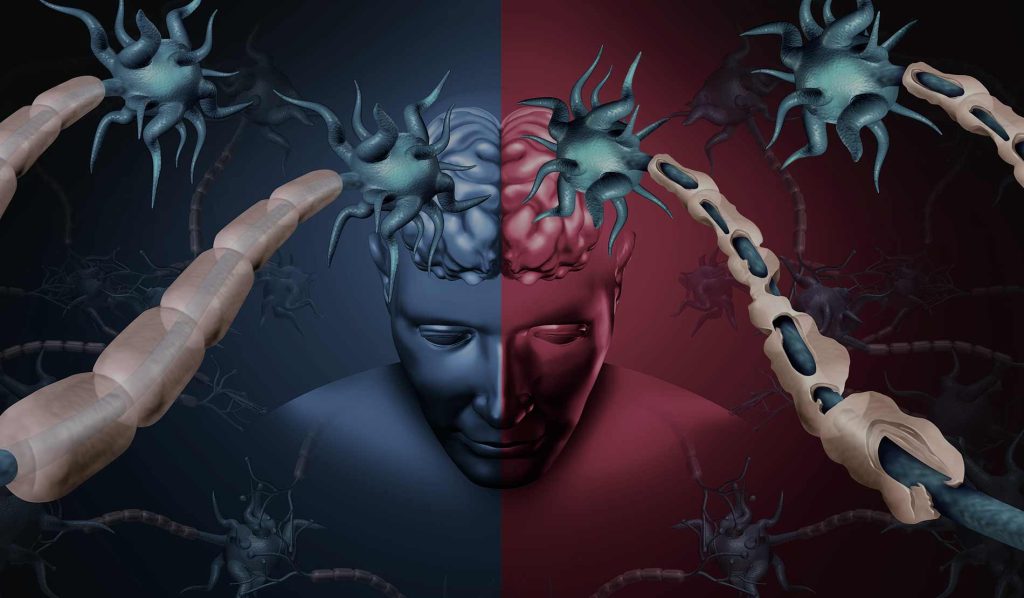Cell Therapy
Stem cells and type 1 diabetes
In type 1 diabetes, the body´s own insulin production has completely stopped. For some unknown reason, the body´s immune system attacks and destroys the insulin-producing cells in the pancreas, which eventually leads to total insulin deficiency1.
It is not known why the immune system, which is there to defend the body against infections, attacks and destroys its own insulin-producing cells.
Many researchers believe that a combination of hereditary predispositions and an external environmental factor is required, there is speculation as to whether viruses or chemicals can act as the igniting spark that start the attack. But there is no answer to the question today.
There is also no curative treatment today1, but since the 1920s, insulin has been supplied via injections, which is the treatment given. All people with type 1 diabetes are treated with insulin. However, it is difficult to optimize the doses and keep the blood sugar stable, something that puts patients at risk for complications such as kidney damage, eye problems and heart attacks.
The properties of the mesenchymal stem cells, MSCs have led to great interest clinically, as therapy in diabetes.
Per-Ola Carlsson and his colleagues, Akademiska sjukhuset, Uppsala University Hospital, were the first in the world to show in a study (NCT01068951) in 2015 that autologous MSCs can be used safely and effectively in the treatment of newly diagnosed patients with type 1 diabetes2. 20 adult patients were randomized to either an active group that received autologous MSCs from the bone marrow or a control group. After one year, β-cell function in the actively treated group was found to be improved or maintained but deteriorated in the control group.
NextCell Pharma are performing clinical trials where we are trying to stop the body’s immune attack against the insulin-producing cells in type 1-diabetes.
The hope is that patients will eventually regain or increase their own insulin production. The two most important mechanisms for the positive effect that have been observed with MSCs in diabetes are suggested to be their ability to reverse or limit the inflammatory process and to restore the function of the β-cells.
In the first study with NextCell Pharma´s candidate ProTrans, the safety of different doses of MSCs from the umbilical cord to adults between ages of 18-40 who debuted with type 1-diabetes in the last two years, was examined. The results of the first study showed that the treatment was safe.
A statistically significant difference in own insulin production between the different patient groups could be seen.
The patients who received a higher dose of stem cells lost less of their own insulin production during the first year, compared to those who received a low dose.
In September 2020, the second phase, was completed. In particular, the effectiveness of the treatment was examined, through a double-blind test in which five patients received placebo and 10 received high doses of stem cells, ProTrans. Those who received placebo lost an average of 47 % of their own insulin production during the first year, while those who received stem cells lost an average of 10 %.
A few clinical trials have evaluated MSC treatments for type 1-diabetes, a few more studies have evaluated combination therapy with hematopoietic stem cells or bone marrow mononuclear cells.
The safety and efficacy of these different therapy strategies were recently reviewed and there is a publication by Sun, et al. 2020, about this3. In summary some of these studies showed that stem cell therapy in addition to insulin therapy reduces HbA1c levels and allows the insulin dose to be lowered in patients with type 1-diabetes4. In addition, treatment of diabetes with MSCs showed a positive effect on C-peptide levels4,5.
One of the few studies in which children/adolescents have been treated with MSC is a double-blind, randomized placebo-controlled study by Hu, et al., 5.29 patients were included in the study and randomized to receive standard care in type I diabetes along with either two infusions of MSC or for control patients saline. Results from the study show that children/adolescents with type 1 diabetes treated with MSC get a better blood sugar control, a certain improvement in insulin secretion and a certain regeneration of β-cells at a two-year follow-up, compared with the control patients.
Stem cell therapy may not yet cure type 1 diabetes, but there are documented cases where patients have gone several years without the need for insulin injections. Some clinical trials use umbilical cord blood stem cells to treat type 1 diabetes.
Professor Per-Ola Carlsson, Uppsala University and Akademiska sjukhuset, is the Principal Investigator for all clinical trials with ProTrans for the treatment of type 1 diabetes and will also be the principal investigator in a first study to treat children and young adolescent with type 1 diabetes, ProTrans-Young (EudraCT 2020-004520-42). NextCell will contribute with study drug, ProTrans.
The study is presented here:
https://www.youtube.com/watch?v=kE4POLMlXWA
These are some of the potential avenues that researchers are investigating to see how stem cells can help patients preserve their insulin producing cells and be cured of type 1 diabetes.
References
- Daneman, D. Type 1 diabetes. Lancet 367, 847-858, doi:10.1016/S0140-6736(06)68341-4 (2006).
- Carlsson, P. O., Schwarcz, E., Korsgren, O. & Le Blanc, K. Preserved beta-cell function in type 1 diabetes by mesenchymal stromal cells. Diabetes 64, 587-592, doi:10.2337/db14-0656 (2015).
- Sun, S. Y. et al. Efficacy and Safety of Stem Cell Therapy for T1DM: An Updated Systematic Review and Meta-Analysis. J Diabetes Res 2020, 5740923, doi:10.1155/2020/5740923 (2020).
- Cai, J. et al. Umbilical Cord Mesenchymal Stromal Cell With Autologous Bone Marrow Cell Transplantation in Established Type 1 Diabetes: A Pilot Randomized Controlled Open-Label Clinical Study to Assess Safety and Impact on Insulin Secretion. Diabetes Care 39, 149-157, doi:10.2337/dc15-0171 (2016).
- Hu, J. et al. Long term effects of the implantation of Wharton’s jelly-derived mesenchymal stem cells from the umbilical cord for newly-onset type 1 diabetes mellitus. Endocr J 60, 347-357, doi:10.1507/endocrj.ej12-0343 (2013).



